6 Fitness & Nutrition Tips for Generation X
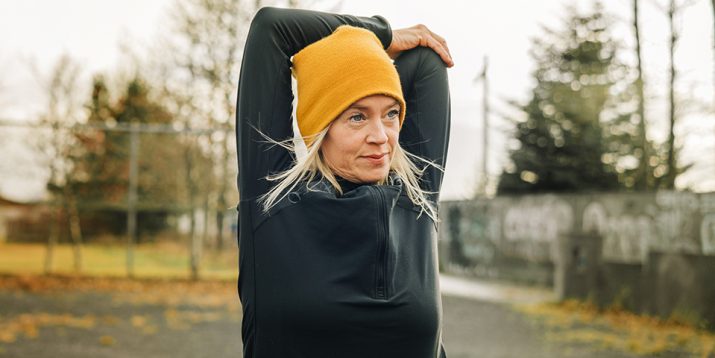
While no one really wants to grow old, it’s safe to say that Gen X is fighting it harder than most generations before them.
Despite our graying temples, you still see us defiantly wearing the coolest fashions, sounding on-point AF with the latest slang, and working out with the zeal of Millennial gym rats.
While most of those activities are theoretically sustainable (although my daughter tells me I’m hit-or-miss with the slang), many of us have reached a point where we need to put a little extra thought into working out.
You may exercise to appease your inner 20-something, but facts are facts: You’re driving a 50-something rig.
No getting around it. We’re getting old.
I’m not saying you should hit the rocking chair and start working your way through your Murder She Wrote: The Complete Series DVD boxset (again).
On the contrary, exercising and eating right become even more important as we age, given combined they help stave off almost every common ailment you can think of — and they make you feel awesome.
The trick is to be smart about it.
There’s no reason you can’t keep doing the activities you love — or try new activities.
But by following a few simple pointers, you can live your best fitness life while increasing your progress and decreasing your chance of injury.
To best advise you on the topic, I enlisted two of BODi’s top fitness/nutrition experts: Jeffrey Scott, Vice President of Fitness and Nutrition Results, and Emily Fritz PhD, Executive Director of Scientific Affairs.
Together, we’ve come up with a few tips to help you achieve your fitness goals, regardless of your age.
1. Go Hard — But Not Too Hard
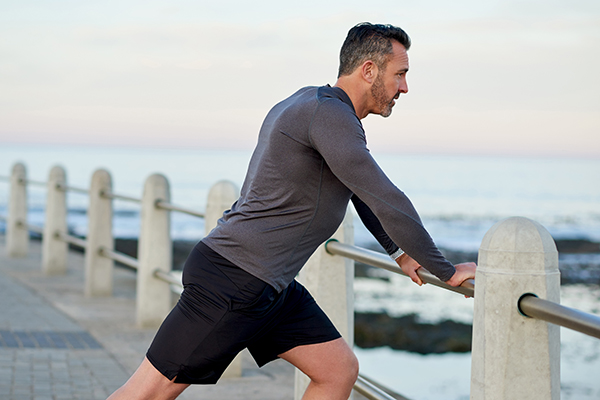
If you’re fit and fifty-plus, you may find that you can still nail a workout like you could when you were thirty.
But should you?
It may be fun in the moment, but there’s a good chance you’ll be sore afterward to the point that it inhibits your next workout.
With that in mind, it’s okay not to bury yourself during today’s routine if it allows you to come back strong tomorrow.
“I’m mindful of what my body is capable of,” says Scott, himself a 54-year-old veteran athlete. “I work at a level where I know I’m challenging myself, but I also don’t want to debilitate myself the day after. Work out at an intensity level that’s appropriate for your fitness so that you don’t debilitate yourself and then need four or five days to recover from that.”
How do you figure out your limits?
If you don’t know already, it’s just a question of trial and error, says Fritz.
“Find that rhythm of what you’re capable of doing so that you’re pushing the limits and improving your fitness and reaching your goals, but not overdoing it. Because once you find that balance, you might be able to go longer and harder,” she explains.
These guidelines also apply to modifying BODi programs.
“I can do 6 Weeks of THE WORK, absolutely,” says Scott. “I just have to be mindful of the weight selection of what I’m about to do and make sure that I am properly warmed up and I take time to recover appropriately in between workouts. As I age, I may not be able to maintain the calendar that’s recommended, I may have to insert a recovery day every two to three days if necessary.
“But I also have to give myself permission to do that and make sure that I’m thinking of myself first and not just trying to adhere to a program, so I might have to rearrange things a little bit.”
2. Manage Your Total Stress Load
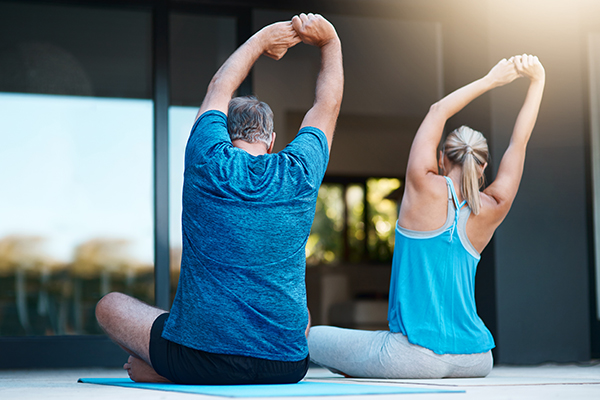
When you were twenty, you probably didn’t plan on being this stressed out by the time you hit middle age.
Job, pandemics, politics, failing appendages, kids, mortgage, kid’s mortgage. Who knew?
All these elements pile up with the general stresses of modern living to make up your “total stress load.”
Exercise plays a strange role when it comes to total stress load. While technically a stressor, when done in a balanced way, exercise can help relieve stress.
However, if you do too much of it — or if your total stress load is overwhelming — exercise just becomes part of the problem.
“Training induces stress, life induces stress, lack of sleep induces stress,” Fritz explains. “So, you do have to be flexible based on that. And it’s not just workouts, it’s the cumulative effect of life over the course of each day.”
For example, if you stayed up late working and only got 3 hours of sleep, an intense HIIT session the next morning will probably just further exhaust you.
“Check in on yourself during your warmup,” suggests Scott.
“What have I got in the tank today? Maybe you’re great Monday, Tuesday, Wednesday, Thursday, but by Friday you get a little tired. It’s physical fatigue, it’s mental fatigue from working a lot — so you may not be able to give it your all.”
Another solution might be not to work into the wee hours. (I know, right?) Combine this with other obvious life hacks to manage that total stress load.
Not only will this help improve your quality of living in general, but it could improve your performance.
“If you can find a routine — whether it’s meditating, engaging in healthy sleep patterns, avoiding excessive amounts of alcohol, or eating a diet high in fruits and vegetables — these things all impact your performance,” says Fritz.
“The more of those helpful behaviors you can engage in, the longer you’ll be able to exercise at a higher intensity,” she adds.
“Look at athletes like Tom Brady and LeBron James and the longevity protocols that they practice in terms of how regimented their diet is, how regimented their sleep schedule is, how careful they are about stress management,” Fritz suggests. “They’re doing visualization, they’re meditating, they’re getting massages, they’re doing all of it right because it’s their job.”
3. Clean Up Your Diet
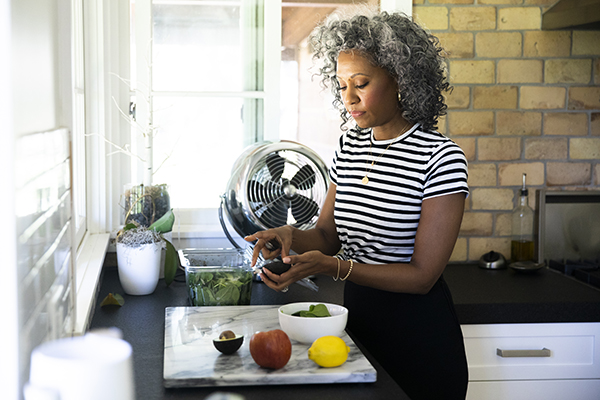
Yeah, I know, we tell everyone to do this, but it gets more important with age.
Just as our ability to recover from a brutal workout slows down, so does our ability to recover from bad nutritional choices.
Hangovers last longer. Heartburn becomes more frequent. Blood glucose and cholesterol numbers creep up with every check-up.
Obviously, many of these sorts of issues can be preventable — or at least highly delayable — with a healthy diet.
The antioxidants in fruits and veggies help fight the damaging effect of oxidative stress.
Adequate fiber will help keep you regular as digestive motility decreases with age.
(In other words, you don’t move food through your digestive tract the way you used to, but fiber can help sweep things through.)
And one macronutrient, in particular, becomes increasingly important as you age…
4. Focus On Your Protein
Your body is in a constant state of breaking down and rebuilding itself. As we age, we start to lean into the breaking down part. This includes muscle mass. Here is where protein can help.
Protein is made of amino acids, the material used for rebuilding. This applies to all kinds of tissues in your body, including muscle.
By having an adequate supply of protein in your diet, you help assure that when you are in a building phase (or anabolic state, if you’re fancy), you have all the amino acids you need to complete the job.
“As you get older, you need more protein,” affirms Fritz, “and then the more active you are, especially if you’re doing resistance training exercise, the more protein you need to even get close to building muscle mass the way younger adults can.”
“So, you have an increased baseline protein need but then you add activity on top of it and it increases your needs further.”
If you’re looking to quantify how much protein you need, there are a couple ways to go about it.
Fritz points out that the recommendation for average Americans is about 0.8 grams of protein per kilogram of body weight per day.
For an older adult, it climbs to 1.2-1.4 grams per day. For an older adult doing resistance training, we’re creeping up on 2 grams per kilogram of body weight.
If you’re looking for easier math that avoids having to convert your weight to kilograms (1kg=2.2lbs, FYI), try to eat 20g to 30g of protein at a time, four times a day.
This can easily be done with 2B Mindset or Portion Fix, especially if you include Shakeology in your diet, which features 16g-17g of protein, and/or Beachbody Performance Recover, which contains 20g of protein per serving.
And if you find 30 grams of protein works as a sweet spot for you, it’s perfectly fine to have a scoop-and-a-half of Recover after workouts, as opposed to just a scoop.
5. Creatine: Not Just for Bros Anymore
Since we’re discussing supplementation, traditionally, creatine has been the providence of those looking to get swole.
Yes, it can be used to build muscle mass — but it can also be used to maintain muscle mass.
“When we’re looking at older adults, there is emerging science that suggests from a muscle mass maintenance perspective, from a bone health perspective, that you’re going to get a lot of benefits,” says Fritz. “With decreasing muscle mass, they’re also experiencing decreasing stores of creatine in their muscles. Supplementing is really important.”
6. Remember: It’s Not Too Late to Change
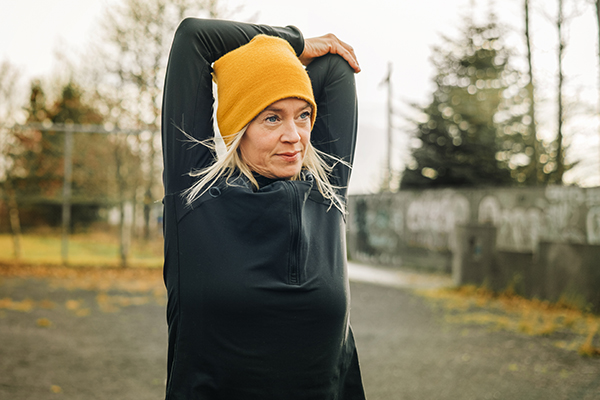
Finally, maybe it’s been a few years — or decades —since you’ve taken exercise seriously. Or maybe you never took it seriously and you’d like to start.
Beginning a new fitness routine is entirely possible no matter your age.
Changing and adapting your lifestyle may not be your favorite activity, but you can do it!
You’re human and that’s what we’re famous for: changing and adapting.
“Can you teach an old dog new tricks? I think that you can,” Scott says. “It’s just a choice whether you’re willing to do that. I do think that if you do want to live a healthier life, you can make choices that will get you in that direction.”
Scott uses the example of his brother, a 30-year veteran police officer who used to lift weights to stay fit, but now deals with chronic back issues.
“What he’s choosing to do now is very different than when he used to do, but he’s found something that he enjoys. He loves walking, he loves stretching, he likes Pilates. He’s an example of someone who has made smarter choices as he’s progressed through life.”
“There’s enough information out there for anyone who wants to live a better life,” he adds. “Simple choices that we make on a daily basis can affect our health in profound ways.”
Looking for more expert tips? Head over to BODi and find out how BODi’s at-home workouts, nutrition programs, and online community work together to help you reach your health and fitness goals.
